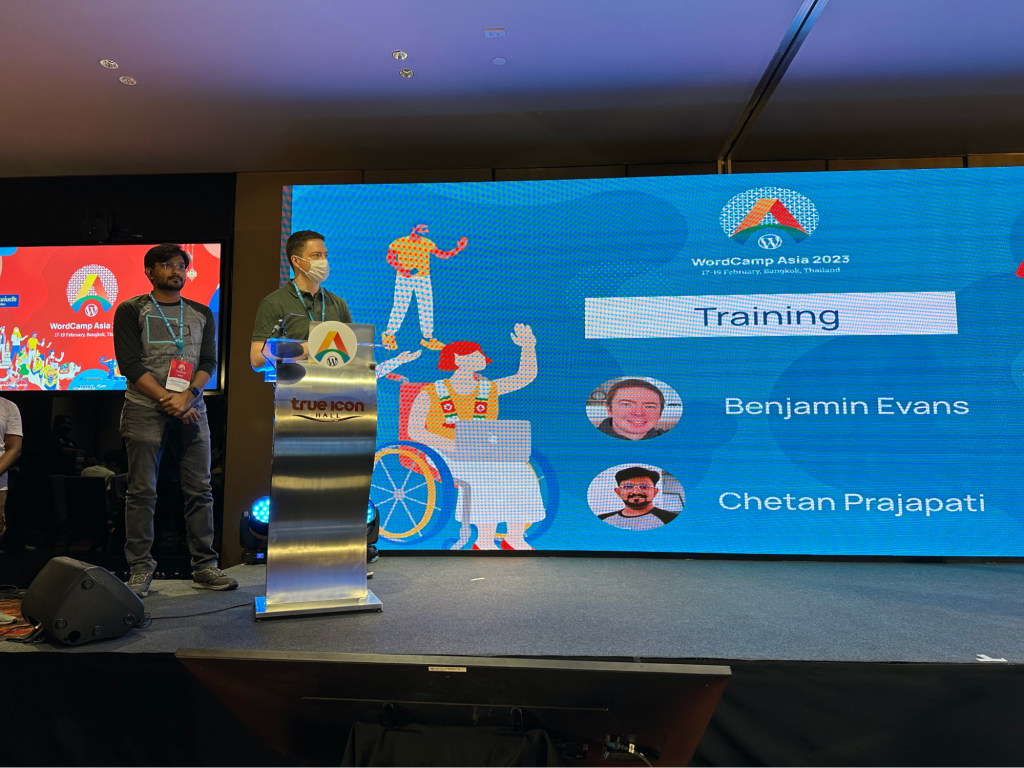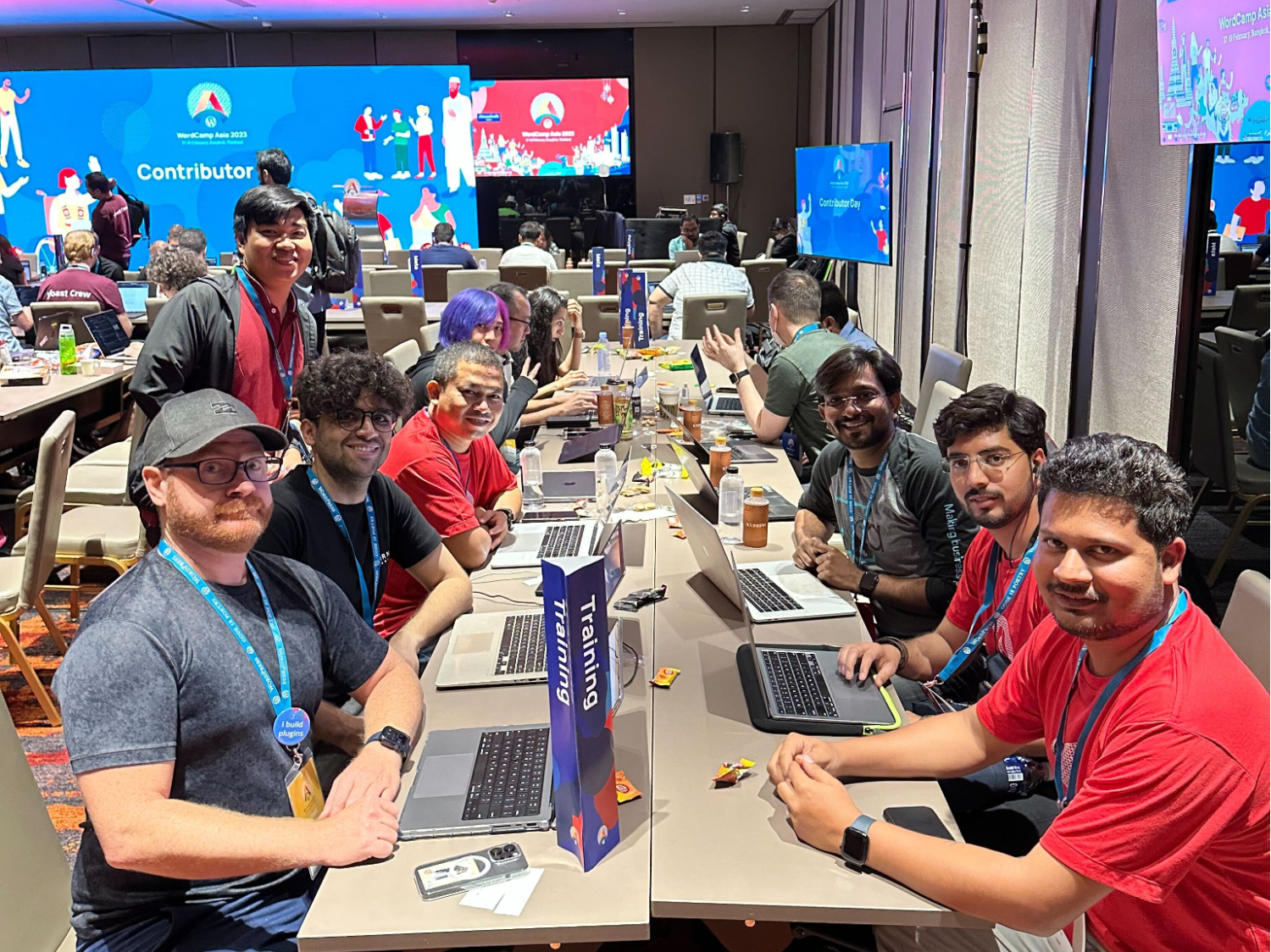Introduction
The Training Teams’ vision for 2023 is to “empower users to achieve their goals with WordPress through actionable and practical learning experiences that bring the community together.”
One way that this vision can be achieved is through the concept of course cohorts.
A course cohort is defined as a group of people who go through a learning journey at the same time. Course cohorts can be run asynchronously, but include planned synchronous sessions for group-related activities. Course cohorts usually follow aspects of social learning, where the group can interact with each other, and learn from each other.
This post is a proposal for how the Training Team could run course cohorts. The idea behind this post is to look at how the Training Team could plan, market, and execute course cohorts using the available course content on Learn WordPress. Ultimately, once feedback has been gathered from the Training Team and the WordPress community, this proposal can be turned into a handbook entry and used to launch the first Learn WordPress course cohort.
Considerations:
- Attendee availability
- Attendee location/timezones
- Course material
- Asynchronous access to content
- Group leadership
- Attendee engagement
- Defining success
Timeframe
Given the open source Open Source denotes software for which the original source code is made freely available and may be redistributed and modified. Open Source **must be** delivered via a licensing model, see GPL./self-paced learning environment of Learn WordPress, we cannot assume that attendees have large amounts of dedicated time to apply to a course cohort. The nature of a cohort is that it has to have a set start and end date. It is also not ideal to require attendees to commit to lengthy cohorts, as they might lose interest, thereby affecting completion rates.
For this reason, it’s recommended that a course cohort based on Learn WordPress content not be longer than 4 – 6 weeks.
The majority of our existing courses consist of either 4-5 modules or 4-5 lessons (short courses) so this fits with the suggested timeframe.
When preparing the course content, we should determine a specific amount of hours required by attendees each week to review the course content, attend synchronous sessions, and complete course activities. Ideally, we should expect course attendees to spend an average of 2-3, but not more than 5, hours per week on these tasks and should adjust the course content accordingly. Course activities should be practical, but not too lengthy.
Teaching structure
I propose that we leverage existing course content and lesson plans to run course cohorts. The most straightforward way to do this would be to create a copy of an existing course in the Sensei LMS on Learn WordPress and configure it for a course cohort. This will allow us to both manage attendees for a course cohort and add specific lessons for any planned synchronous sessions. This version of the course can then be reused for later cohorts.
Course content
For the first round of course cohorts, we could use courses that are beginner-friendly, have enough content (but not too much) to fill up the estimated timeframe, and can be run by any members of the faculty content team or subject matter experts (SMEs).
Each week, there should be at least one asynchronous activity and at least one in-person session that participants are asked to complete. The asynchronous activities can include online whiteboard exercises, course content quizzes, and/or technical exercises that can be submitted. Ideally, where needed, these quizzes and exercises should be capable of “self-assessment”.
Alternatively, we could consider how we could make it possible for course attendees to assess each other’s exercises anonymously.
The in-person session can be held via Zoom, or the facilitator’s choice of video conferencing platform, as we do with our Online Workshops. These sessions, however, should be for course cohort participants only.
Ideally, the course should also have one overarching task, in the form of a final project, that participants are encouraged to complete.
Where possible, this project should be such that a series of automated tests can be performed on it to determine whether it meets certain criteria. Project types that would be suitable for this type of testing would anything to do with building with WordPress or extending WordPress. This could be in the form of unit tests (testing units of code), functional tests (testing collections of functionality), or acceptance tests (also known as e2e tests, where you automated the process of manually testing the task in a headless browser). For projects that can’t be tested automatically, we should rely on course attendees assessing each other’s projects anonymously.
It is important therefore to decide what this final task will be upfront so that the testing framework can be defined and implemented beforehand.
Attendee numbers
Managing a course cohort is something new to the Training Team. Therefore at this time, we don’t have a good handle on what is possible, or how many is too many. Personal experience in running online workshops points to limiting the initial maximum number of attendees to 15. However, we can review this over time, and adjust accordingly.
While ultimately the number of attendees should be decided by the course facilitator, we suggest no fewer than 5 and no more than 30.
Attendee selection
Given the asynchronous nature of our work and the fact that our learning community is spread across time zones, it is recommended that we approach attendee selection in a fair but randomized manner.
Once the course content has been determined, a public post on the Training Team blog will be published, announcing the fact that interested participants can sign up to be considered for the course cohort.
We can then work with the Marketing Team to have the course cohort post marketed across social media platforms and WordPress news platforms. Some popular platforms include:
- WordPress.org News – https://wordpress.org/news/
- WP Tavern – https://wptavern.com/
- WP Content – https://wpcontent.io/
This post should include a couple of validation questions, to ensure possible attendees meet a small list of requirements:
- They have a WordPress.org The community site where WordPress code is created and shared by the users. This is where you can download the source code for WordPress core, plugins and themes as well as the central location for community conversations and organization. https://wordpress.org/ profile
- They can dedicate the required time each week to completing the course content/activities
- They should be able to attend at least one in-person session per week or be able to catch up with the session asynchronously.
The post should remain open for at least 2 weeks, after which time 15 attendees will be chosen at random. This allows for a fair selection process. Any attendees that are not selected can be added to the waiting list for the next time this cohort is run and notified accordingly.
Cohort group leaders
It is recommended that in order to lead a course cohort, contributors should meet the following requirements:
- Be a member of the Training Team faculty
- More specifically, be a member of the faculty content creators or subject matter experts
- Have a proven track record of hosting online workshops, tutorials, or courses
- Ideally have hosted at least 2-3 online workshops OR
- Published 2-3 tutorials on Learn WordPress OR
- Published a course on Learn WordPress
The reason for these requirements is due to the fact that course leaders will need to be trusted to run the course in alignment with the WordPress community guidelines, as well as have an understanding of how to create and present learning content. They may also need to have access to private attendee data (e.g., email addresses) and should be trusted not to abuse this data access.
Course cohort updates
As discussed elsewhere in this proposal, all course updates should happen via the Training Team blog. Below is a list of the possible blog posts that could be created, to update the community on a specific course cohort:
- Course Announcement/attendee sign-up post
- Include details about what a course cohort is, what to expect, and how to sign up
- Include details of the specific cohort topic/course content
- Standard 2-week comment/sign-up period
- A final comment to indicate course sign-up is complete, and close comments
- Course commencement post
- Indicate that the course cohort has begun, with an estimated end date, and projected outcomes
- Course wrap-up post
- Include details of course progress, invite participants to send in their course feedback, and tease the next cohort
Course cohort communication
In order to allow learners and facilitators to the community with each other asynchronously during the duration of the course cohort, we will need to implement some form of an intentional and focused learning community for Learn WordPress. Options include using the Make WordPress Slack Slack is a Collaborative Group Chat Platform https://slack.com/. The WordPress community has its own Slack Channel at https://make.wordpress.org/chat/., a dedicated forum like Discourse, or a WordPress plugin A plugin is a piece of software containing a group of functions that can be added to a WordPress website. They can extend functionality or add new features to your WordPress websites. WordPress plugins are written in the PHP programming language and integrate seamlessly with WordPress. These can be free in the WordPress.org Plugin Directory https://wordpress.org/plugins/ or can be cost-based plugin from a third-party solution like bbPress Free, open source software built on top of WordPress for easily creating forums on sites. https://bbpress.org. installed on Learn WordPress.
Measuring success
To measure the success of a course cohort, we can consider the first two levels of Kirkpatrick’s Four Levels of Training Evaluation.
- Results: The degree to which participants find the training favorable, engaging, and relevant
- How many participants complete the weekly activities?
- How many participants attend the in-person sessions?
- How many participants complete the course feedback survey?
- This should include a pre-course survey and a post-course survey to measure attitudes, engagement, and value.
- Learning: The degree to which participants acquire the intended knowledge, skills, attitude, confidence, and commitment based on their participation in the training
- How many participants complete the course?
- How many participants pass the quizzes/tasks/assignments during the course
- How many participants pass the final task?
- How many participants both complete the course and pass the final task?
At this stage, it is hard to pinpoint what is an indication of success for each level. Therefore the following arbitrary numbers are proposed.
- Results – at least 50% of participants complete the activities, attend the in-person sessions, and/or complete the feedback survey
- Learning – at least 50% of participants complete the course, and pass the final task, or both.
As this content is both open source and community-driven, we don’t really have a way to measure the second two levels, namely, the degree to which participants apply what they learned during training when they are back on the job, and the degree to which targeted outcomes occur as a result of the training and the support and accountability package.
Share your feedback
What do you think of this proposal? Do you think we’ve covered everything that we need to be aware of? What’s missing, what’s not necessary?
This post is open to feedback until Friday, April 7, 2023. Please leave your feedback in the comments below.





